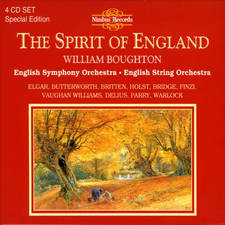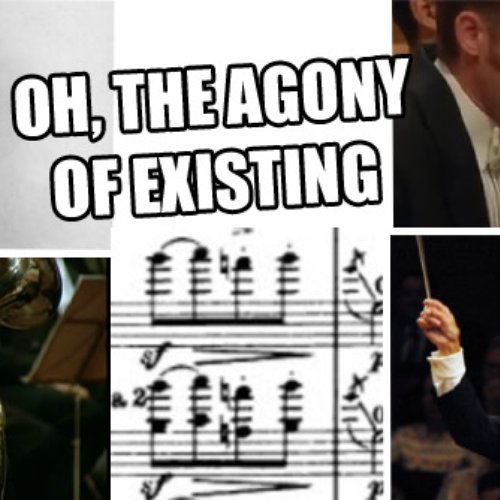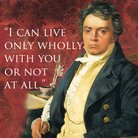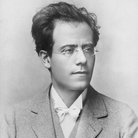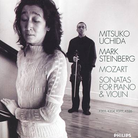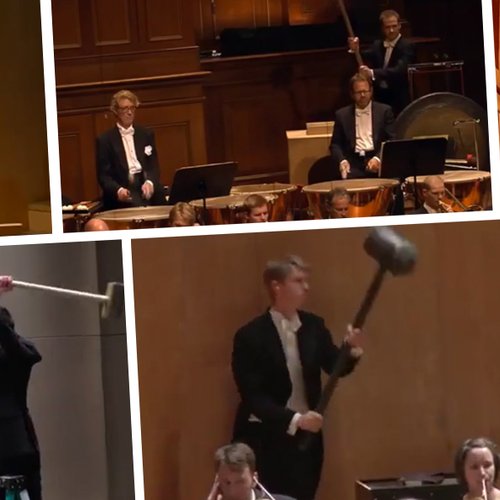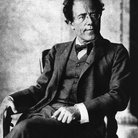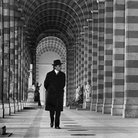Ken Russell On Gustav Mahler
Film director Ken Russell was first captivated by Tchaikovsky, but it is Gustav Mahler who has inspired him throughout his career.
I was recuperating from a mini-breakdown at the end of the war and leading a vegetable existence at home, recovering. The radio was on all the time and for several months I sat in a chair not paying much attention when suddenly some music came on that made me sit up and take notice.
The announcer gave the title of the piece and I dashed outside, pumped up the tyres of my bicycle and cycled to the nearest record shop where I asked for Tchaikovsky’s B flat minor Piano Concerto played by Solomon and the Hallé. When I first discovered Tchaikovsky I couldn’t help listening to his music and seeing pictures at the same time.
As a film director many years later, I was very much taken with the power of music to enhance images. In fact, I’d discovered this at the age of 12 when I had a hand-cranked projector. I showed silent movies and was very much into Fritz Lang films like Metropolis and Siegfried. I used to give shows to the neighbours for the Spitfire Fund. Odd thing was I could only get German films! I found that with the right music the silent film could be enhanced a thousand-fold.
I don’t remember when I discovered Mahler. I found his music very pictorial, very passionate but also very surprising. Like Prokofiev – another of my favourite composers – his scherzos can be rather grotesque. He loved his wife but they had their ups and downs. She was a composer herself but Mahler thought she was just playing at it. She actually wrote some lovely songs which he finally acknowledged.
I based my film about Mahler [Mahler, 1974] on the rondo form in music where you present the theme and follow it with variations, then return to the theme and so on. My theme was the composer’s last train journey before he died. During the journey we flash back to incidents in his life, the variations on the theme as it were. They vary from passion to comedy.
Like the scherzos from his symphonies some of the scenes are pretty grotesque, too. For instance, there is his conversion from Judaism to Catholicism. Wagner’s daughter ran the music scene in Vienna at the time and to curry favour with her, Mahler became a Catholic and so joined the “club”. He advanced his career in Vienna and all over the world as a result because what she said, went. He conducted several operas at her insistence.
I think that other so-called Mahler film, Death in Venice, is rubbish. People think it’s about Mahler, all because his music is part of the soundtrack! The director, Visconti, never said it was about him, though. I mock the film in mine. I have a satirical moment when Mahler looks out of the train and sees this dying lookalike.
Robert Powell, who played Mahler for me, was very good. He looks like him for a start. He was very sympathetic to the character and loves his classical music. Filming was done in six weeks in the Lake District. Some critics mocked me for showing the Gestapo in it when Mahler had died in 1911 long before they existed.
Then I heard that Klaus Tennstedt, one of the great Mahler conductors, was dying to meet me. I thought he wanted to tell me off for bringing the Gestapo into my film.
Ten years later at some function I felt a hand on my shoulder. It was Tennstedt and I braced myself, waiting for him to hit me – he was a very tall man. But he said he’d been wanting to tell me that the scene was exactly what he saw every time he conducted the first movement of Mahler’s Sixth Symphony. Of course, the Gestapo weren’t around in Mahler’s time, he said, but Mahler was a prophet, he saw the possibility.
• ‘A British Picture: An Autobiography’ by Ken Russell (Southbank Publishing, £12.99) is out now.
On Disc: Ken Russell’s Heroes
Tchaikovsky
Piano Concerto No.1
Solomon (pf), Hallé/Harty
Naxos Historical 8.110680
Mahler
The Complete Symphonies
LPO/Klaus Tennstedt
EMI Classics 572 9412
Mahler
Directed by Ken Russell
Starring Robert Powell
Pearson FHED1845
